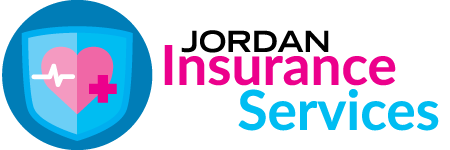
HSA Annual Maximum Contributions for 2025:
Employee Only $4,300
Family $8,550
*If you are over the age of 55 you can contribute an additional $1,000 each year
If you are enrolled in our STAR (QHDHP) Plan, you are eligible to contribute to an HSA account. Starting September 2025 the district will be matching HSA contributions up to the following amounts:
Employee Only - $25/monthly - $300/annually
Employee +1- $50/monthly - $600/annually
Employee + Family - $75/monthly - $900/annually
*Please note, the amount the district contributes to your HSA does count against the annual maximums.
In order to receive the company match you will need to enroll in an HSA at our preferred financial institution - AFCU/Lively. To enroll in a Lively HSA, login to InfinityHR.com and complete an "H.S.A. Change" Event (or if enrolling during Open Enrollment complete an Open Enrollment event). You will be required to create a login and finalize your account at AFCU/Lively after the information is sent to them. This information will go to your district email after you sign up on InfinityHR.com. AFCU/Lively is currently free to our employees and will not cost you anything to open and have the account.
If you wish to enroll with another HSA institution complete the form for an HSA direct deposit below, however you will not be eligible for the company match listed above. You must have this account established prior to incurring any eligible expenses.
HSA Direct Deposit Authorization
FAQ'S:
Q. I have spent money to pay for prescriptions or doctor visits using money out of my pocket because there was no money in my HSA account - when there is money in there how do I get reimbursed?
A. You can reimburse yourself as money is deposited into your Health Savings Account.
Q. How do I keep track of where I am at in relation to meeting my deductible for the year?
A. When you receive your Explanation of Benefits “EOB” from PEHP it will have a balance that you can verify. PEHP has a great website (www.pehp.org) that allows you to track EOB’s, what charges applied to the deductible, and research drugs or surgeries. Log-in and get to know how it can help you.
Q. Do I really need to keep my receipts for everything I pay for using money from my HSA and for how long?
A. Yes, you will need this information should you ever get audited by the IRS. The IRS can audit you for 7 years for the use of your HSA funds. You will need to be able to prove that money spent from your account went to eligible expenses. I would recommend attaching all receipts to the monthly statement when the deduction occurs.
Q. If I am participating in my companies Qualified High Deductible Health Plan (QHDHP) and have opened an HSA account, can I also be covered on another plan?
A: Only if both plans are QHDHP’s. If they are not both QHDHP’s you could participate in the medical portion but would not be allowed to contribute to an HSA Account.
Q. Who owns the HSA Account and what happens if I leave my current employer?
A. Once the funds are deposited into the HSA account, they are the employees. The employer has no control over the funds. It accumulates from year to year. One main intent of the law is to have funds available for retirement healthcare costs. HSA’s are also portable, which means that you keep the HSA even if you change jobs or become unemployed. There is also no use-it-or-lose-it provision, like with a Flexible Spending Account (FSA). Instead, unused contributions roll over each year, with interest and/ or investment earnings compounding on a tax-free basis, like an IRA or 401(k). HSA’s offer you the potential for long-term, tax-free savings that can be used for future medical expenses, such as Medicare premiums and certain long-term care expenses and insurance.
Q. Do I have to pay for my qualified expenses, or can I leave the money in there to grow.
A. Employees decides whether and how much to spend from the account for their medical expenses, whether to spend out-of-pocket or to save the HSA money for the future. Just like a 401(k), earnings that compound tax-free for several years have the potential to grow exponentially into a supplemental retirement nest egg. After age 65 (or if disabled), employees can withdraw funds for non-qualified expenses without being subject to the 20% penalty, but ordinary income taxes still apply.
Q. Can I use the money in my HSA Account to pay premiums?
A. No. The premium charged is separate from the funds in the HSA. An employee cannot use HSA funds to pay premium. They are separate.
You can only use your HSA to pay health insurance premiums if you are collecting Federal or State unemployment benefits, or you have COBRA continuation coverage through a former employer.
Q. Can I access my account through a website?
A. Your HSA account is much like any other savings account. You can use the vendor’s website to oversee everything about your account.
Q. Can I pay for the expenses out of my money and if necessary, take a distribution at a later date?
A. If you have used out of pocket money to pay for a service, you can later pay yourself back from the HSA funds. If audited, you’ll need to show that there existed eligible charges for the expense that occurred after enrolling in a QHDHP and had established the HSA account.
Q. Does an HSA pay for the same things that regular insurance pays for?
A. HSA funds can pay for any “qualified medical expense”, even if the expense is not covered by your QHDHP. For example, your health insurance does not cover the cost of over-the-counter medicines, but HSAs can with a prescription from your physician. If the money from the HSA is used for qualified medical expenses, then the money spent is tax-free. Please remember that these expenses will not be applied to your deductible or out-of-pocket maximum.
Q. How do I know what is included as “qualified medical expenses”?
A. Unfortunately, we cannot provide a definitive list of “qualified medical expenses”. A partial list is provided in IRS Pub 502 (available at www.irs. gov). There have been thousands of cases involving the many nuances of what constitutes “medical care” for purposes of section 213(d) of the Internal Revenue Code. A determination of whether an expense is for “medical care” is based on all the relevant facts and circumstances. To be an expense for medical care, the expense must be primarily for the prevention or alleviation of a physical or mental defect or illness. The determination often hangs on the word “primarily.”
Q. Who decides whether the money I’m spending from my HSA is for a “qualified medical expense?”
A. You are responsible for that decision, and therefore should familiarize yourself with what qualified medical expenses are (as partially defined in IRS Publication 502) and keep your receipts in case you need to defend your expenditures or decisions during an audit.
Q. What happens if I don’t use the money in the HSA for medical expenses?
A. If the money is used for other than qualified medical expenses, the expenditure will be taxed and, for individuals who are not disabled or over age 65, subject to a 20% tax penalty.
Q. Are dental and vision care qualified medical expenses under a Health Savings Account?
A. Yes, most dental and vision expenses are qualified. Cosmetic procedures, like cosmetic dentistry, would not be considered qualified medical expenses.
Q. Can I use the money in my HSA to pay for medical care for a family member?
A. Yes, you may withdraw funds to pay for the qualified medical expenses of yourself, your spouse or a tax dependent child without tax penalty. This is one of the great advantages of HSA’s.
Q.Can I use my HSA to pay for medical services provided in other countries?
A. Yes.
Q. I have an HSA but no longer have HDHP coverage. Can I still use the money that is already in the HSA for medical expenses tax-free?
A. Once funds are deposited into the HSA, the account can be used to pay for qualified medical expenses tax-free, even if you no longer have QHDHP coverage. The funds in your account roll over automatically each year and remain indefinitely until used. There is no time limit on using the funds. You are no longer eligible to contribute to an HSA for months that you are not covered by an QHDHP. If you regain QHDHP coverage at a later date, you can begin making contributions to your HSA again. You are still subject to the calendar year maximum contribution limits.
Q. Do unused funds in a Health Savings Account roll over year after year?
A. Yes, the unused balance in a Health Savings Account automatically rolls over year after year. You won’t lose your money if you don’t spend it within the year.
Q. What happens to the money in a Health Savings Account after you turn age 65?
A. You can continue to use your account tax-free for out-of-pocket health expenses. When you enroll in Medicare, you can use your account to pay Medicare premiums, deductibles, copays, and coinsurance under any part of Medicare. If you have retiree health benefits through your former employer, you can also use your account to pay for your share of retiree medical insurance premiums. The one expense you cannot use your account for is to purchase a Medicare supplemental insurance or “Medigap” policy.
Once you turn age 65, you can also use your account to pay for things other than medical expenses. If used for other expenses, the amount withdrawn will be taxable as income but will not be subject to any other penalties. Individuals under age 65 who use their accounts for non-medical expenses must pay income tax and a 20% penalty on the amount withdrawn.
Q. Can my adult children on my medical plan open an HSA?
A. Children older than 18 and less than 26 years old, who you no longer claim on your tax return, can open their own HSA account and contribute up to the family maximum each year. You can not use your HSA funds on children not on your tax return, they will need to use their own HSA funds. Please see here for complete list of eligibility requirements.
Looking for more information on HSA Eligibility?
Lively HSA Eligibility Answers
